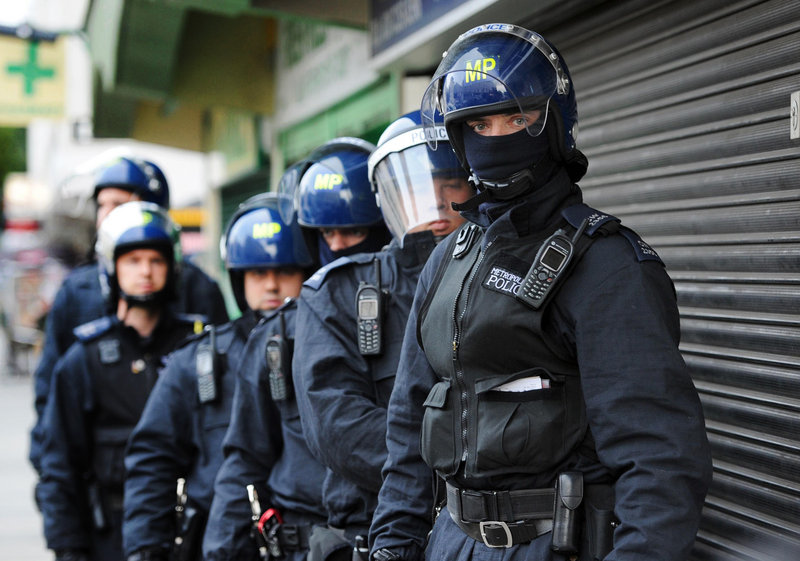LONDON – After four nights of lawlessness, Britain is weighing whether to block statements of violence on social media sites and give police authority to order people to remove face coverings in areas where criminality is suspected, Prime Minister David Cameron said Thursday.
The potential interventions in public privacy and expression demonstrate how deeply the riots and looting have disturbed the sense of law and order here.
“Everyone watching these horrific actions will be struck by how they were organized via social media,” Cameron told British lawmakers in an emergency session of Parliament. “Free flow of information can be used for good. But it can also be used for ill. And when people are using social media for violence, we need to stop them.”
Cameron said authorities would employ the kind of court restraining orders used to limit gang activities in the United States, and step up the cutting-off of welfare benefits to gang members. He vowed to escalate police attempts to track down the looters and arsonists who have run wild in urban pockets across England since Saturday and to keep courts open around the clock to process the 1,200 people already arrested.
The government also will draft contingency plans to have the army take over back-room tasks to free up police for street patrols if necessary, Cameron said. Such steps are unneeded at the moment, he added — city streets were largely quiet on Wednesday night, though in part due to a beefed-up police presence — but the suggestion immediately came under fire by some in the opposition.
Britain, a leading critic of crackdowns by totalitarian governments overseas, is suddenly finding itself in a heated debate over the methods it should use to combat lawlessness at home.
“Whether it’s a popular thing to say or not, a further militarization of the situation will not help and will bring things to an even worse level,” said Diane Abbott, an opposition Labor lawmaker.
Cameron also came under fire for the Conservative-led coalition government’s planned austerity measures, which would cut police budgets and close prisons. But the prime minister refused to bow to opposition pressure for a change in course, insisting that the cuts would not impact the number of police officers available for front-line duty.
Send questions/comments to the editors.



Success. Please wait for the page to reload. If the page does not reload within 5 seconds, please refresh the page.
Enter your email and password to access comments.
Hi, to comment on stories you must . This profile is in addition to your subscription and website login.
Already have a commenting profile? .
Invalid username/password.
Please check your email to confirm and complete your registration.
Only subscribers are eligible to post comments. Please subscribe or login first for digital access. Here’s why.
Use the form below to reset your password. When you've submitted your account email, we will send an email with a reset code.